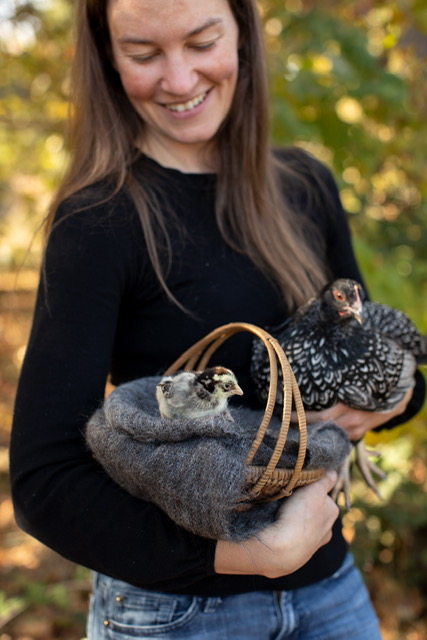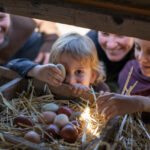Caring for a broody chicken can be a rewarding experience, but it requires some knowledge and preparation to ensure both the mother hen and her chicks thrive. In this guide, we’ll explore the essential steps to properly care for a broody chicken and ensure she is able to take care of her baby chicks when they hatch. Whether you’re a seasoned poultry keeper or new to raising chickens, these tips will help you provide the best care for your broody hen.
Understanding Broody Behavior
A broody chicken is one that has decided to sit on her eggs to hatch them. This natural instinct can occur in many breeds, though some are more prone to broodiness than others. Signs of a broody chicken include:
- Spending most of her time sitting on the nest.
- Fluffing up her feathers and making clucking noises when approached.
- Refusing to leave the nest even when there are no eggs.
Preparing for a Broody Chicken
Once you recognize that your chicken is broody, it’s important to prepare a suitable environment for her. Here’s what you need to do:
- Choose a Safe Nesting Spot: Ensure the nesting box is in a quiet, safe location away from the rest of the flock. This reduces stress and prevents other chickens from disturbing her.
- Provide Fresh Bedding: Use clean, dry bedding in the nesting box. Straw or wood shavings are ideal materials. This helps keep the eggs clean and provides comfort for the hen.
- Ensure Adequate Ventilation: The nesting area should be well-ventilated to prevent the build-up of moisture and ammonia, which can harm the hen and her eggs.
Supporting Your Broody Hen
A broody hen will spend most of her time on the nest, but she still needs care to maintain her health during this period. Here are some tips:
- Food and Water: Place food and water close to the nesting box so she can easily access them without leaving the eggs for too long. Offer high-quality layer feed and fresh water daily.
- Daily Breaks: Encourage her to take short breaks to eat, drink, and defecate. This is essential for her health and prevents her from becoming too weak.
- Monitor Health: Check on your broody hen regularly to ensure she is eating, drinking, and appears healthy. Watch for signs of parasites or illness and address any issues promptly.
Preparing for Hatching
As the hatching date approaches, there are additional steps you can take to ensure a successful hatch and healthy chicks:
- Candling the Eggs: Around 7-10 days into incubation, candle the eggs (use a bright light to check inside) to ensure they are developing properly. Remove any infertile or non-developing eggs to prevent them from spoiling and affecting the other eggs.
- Increase Vigilance: Keep a closer eye on the hen and eggs as the hatching date nears. Watch for any signs of distress or complications.
- Prepare a Brooder: Set up a brooder (a warm, safe space for the chicks) in case you need to intervene or if the hen rejects any chicks. It should have a heat source, like a heat lamp, and be kept at around 95°F (35°C) for the first week, gradually decreasing the temperature as the chicks grow.
Helping with Hatching
When the time comes for the eggs to hatch, your broody hen will likely know what to do, but here are some tips to ensure everything goes smoothly:
- Minimize Disturbance: Avoid handling the eggs or disturbing the nest during hatching. Let the hen and chicks settle naturally.
- Provide Chick Feed: Once the chicks start hatching, offer chick starter feed and water in shallow dishes to prevent drowning. Ensure the dishes are accessible to the tiny chicks.
- Observe the Process: Keep an eye on the hatching process but from a distance. Intervene only if absolutely necessary, such as if a chick is struggling to hatch and is in danger.
Post-Hatch Care
After the chicks have hatched, there are several steps to ensure they and the broody hen are well cared for:
- Bonding Time: Allow the hen and her chicks to bond. She will keep them warm and teach them how to eat and drink.
- Safety and Comfort: Ensure the brooder or nesting area is safe from predators and other chickens. The space should be clean, dry, and warm.
- Monitor Health: Watch for any signs of illness or distress in the chicks. Ensure they are all eating, drinking, and growing well.
Caring for a broody chicken and her baby chicks requires attention, preparation, and ongoing care. By providing a safe environment, ensuring the hen’s health, and supporting the hatching process, you can enjoy the rewarding experience of watching a mother hen raise her chicks. Remember, every hen and situation is unique, so be prepared to adapt and provide the best care possible for your feathered friends.
By following these guidelines, you can ensure that your broody chicken and her chicks thrive, leading to a happy and healthy floc










